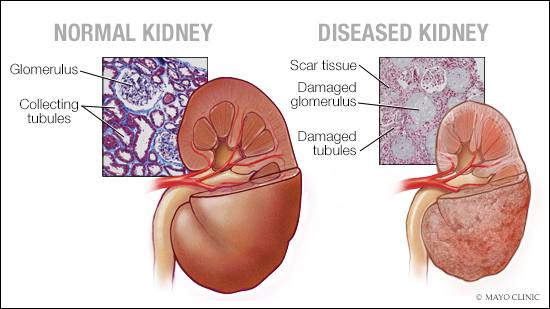Chronic kidney disease is a condition where your kidneys lose their ability to filter waste and fluid from your blood. This can lead to serious health problems such as heart disease, stroke and kidney failure.

The Black community faces a higher risk of chronic kidney disease. This can be due to genetics, higher rates of hypertension and diabetes, and socioeconomic issues such as access to healthcare and structural racism.
Dr. Ivan Porter II, a Mayo Clinic nephrologist, says these factors create a cycle that increases the risk of chronic kidney disease in African American and Black individuals.
There is also a genetic factor. An estimated 13% of Black Americans have a gene variation that puts them at higher risk.
"APOL1 is a genetic variant that's been recognized. It's an abbreviation of apolipoprotein L1. Those socioeconomic factors, and hypertension and diabetes, make someone with those genetic factors more likely to develop kidney disease as well," Dr. Porter explains.
That's why awareness can lead to prevention.
Dr. Porter says there are tests for the APOL1 gene through your primary care clinician or nephrologist. Knowing if you have the gene can help with early detection and disease medication.
"We can't change our genetics. We certainly can control our blood pressure. We can make a difference with our diabetes control. We can try to eat healthier. We can try to exercise — all things that we know correspond to less diabetes, less hypertension and, because of that, less kidney disease," says Dr. Porter.
Originally published on the Mayo Clinic News Network
 Connect
Connect
 Connect
Connect